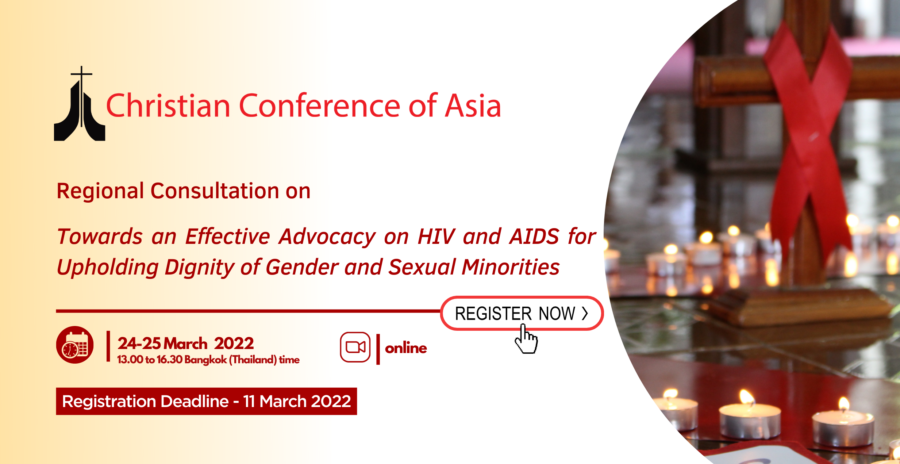CCA to organise Regional Consultation on 'Towards an Effective Advocacy on HIV and AIDS for Upholding Dignity of Gender and Sexual Minorities'

The Christian Conference of Asia (CCA) will organise a regional consultation on ‘Towards an Effective Advocacy on HIV and AIDS for Upholding Dignity of Gender and Sexual Minorities’ on 24–25 March 2022.
The two-day Consultation, which will be held online, will focus on the escalating numbers of HIV infections in Asia and the main barriers of discrimination, marginalisation, demonisation, and violence against vulnerable groups, which hinder availability, access, and uptake of HIV prevention, testing, and treatment services.
Breaking such barriers entails the eradication of all forms of discrimination and prejudice against vulnerable groups and is necessary to ensure that information regarding healthy and safe sex practices, health services, prevention and treatment services are widely accessible to all people with no stigmatisation of gender minorities about their identity, expression, and orientation.
The Consultation will also emphasise the importance of addressing human sexuality and reproductive health as part of the strategy in response to HIV issues in Asia.
The Consultation on 24–25 March 2022 will begin at 13:00 and end at 16:30 Bangkok (Thailand) time on both days.
Registrations are open to members from CCA constituencies, related organisations, and individuals who are engaged in or willing to be part of the advocacy efforts in combatting HIV and AIDS in the Asia region. The last date for registration is 11 March 2022.
The online registration link and the concept paper can be found below:










